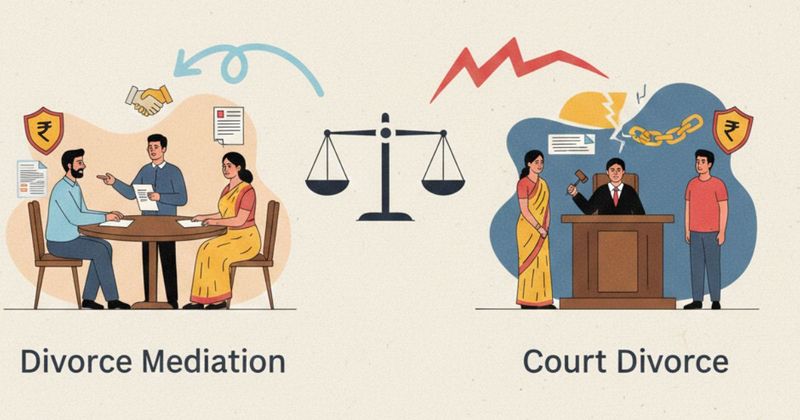Divorce is a life-altering event that can be emotionally and financially draining for all parties involved. When couples find themselves in the midst of divorce, they often face the decision of how to handle the process. Traditional courtroom litigation can exacerbate tensions and escalate conflicts, leading to a lengthy and expensive ordeal. However, there are alternative dispute resolution methods such as arbitration and mediation that offer a more cooperative and efficient approach to resolving divorce issues.
Advantages of Arbitration in Divorce
Arbitration offers a private and confidential platform for resolving divorce-related disputes. A neutral third-party arbitrator, chosen by both spouses, listens to each party’s arguments and evidence before making a final decision that is legally binding on both parties.
Confidentiality: Unlike public court hearings, arbitration proceedings are conducted in a confidential setting, ensuring that sensitive personal matters remain private.
Flexibility: Arbitration allows parties to schedule sessions at their convenience, avoiding the delays associated with court trials.
Efficiency: The streamlined nature of arbitration often results in a quicker resolution, sparing couples the emotional burden of protracted legal battles.
Customized Solutions: With arbitration, the parties have more control over the process, enabling them to craft personalized solutions that suit their unique circumstances.
Advantages of Mediation in Divorce
Mediation is a voluntary process where a neutral mediator facilitates communication and negotiation between divorcing spouses. Although the mediator does not make binding decisions, mediation can provide a foundation for successful arbitration or an amicable settlement outside of court.
Communication Enhancement: Mediation encourages open dialogue and helps spouses better understand each other’s perspectives, fostering a more cooperative environment.
Empowerment: Mediation empowers both parties to actively participate in the decision-making process, promoting a sense of ownership over the outcome.
Preservation of Relationships: Mediation focuses on finding common ground, allowing divorcing couples to maintain a more amicable relationship, especially when children are involved.
Importance of Arbitration and Mediation in Divorce
Minimizing Conflict: By opting for arbitration and mediation, couples can avoid the adversarial nature of courtroom battles, reducing conflict and emotional stress.
Cost-Effectiveness: Arbitration and mediation can be more cost-effective than litigation, as they often require fewer resources and court appearances.
Protecting Privacy: The confidential nature of arbitration and mediation ensures that personal matters are shielded from public scrutiny.
Child-Centric Approaches: When children are involved, arbitration and mediation prioritize the best interests of the children, focusing on cooperative parenting arrangements.
Conclusion
Navigating a divorce is undoubtedly challenging, but with the help of arbitration and mediation, couples can find a more amicable and efficient path forward. The advantages of confidentiality, flexibility, efficiency, and customized solutions offered by arbitration make it an attractive alternative to traditional litigation. Additionally, mediation can lay the groundwork for successful arbitration or an out-of-court settlement, fostering open communication and preserving relationships. Embracing the importance of alternative dispute resolution methods can lead to a smoother transition for all parties involved, allowing them to focus on healing and rebuilding their lives after divorce.




